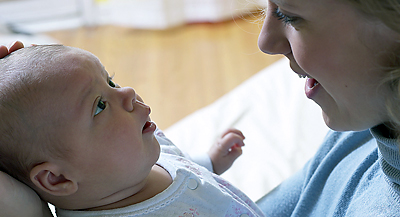
 COLUMBIA—Women seeking an abortion would have to observe a 24-hour waiting period for reflection if a bill before the state Senate becomes law.
COLUMBIA—Women seeking an abortion would have to observe a 24-hour waiting period for reflection if a bill before the state Senate becomes law.
The bill, H.3245, has already passed the state House of Representatives. It would only come up for a vote during this legislative session if the Senate’s Rules Committee sets it for special order.
The waiting period would begin after the completion of an optional ultrasound that state law requires abortion providers to offer. Women are not required to view the ultrasound image.
If a woman declines the ultrasound, she is also given the option of reviewing printed materials that describe fetal development and list agencies that offer alternatives to abortion. She must then wait 24 hours. The current waiting period is one hour.
The full text of the bill can be viewed at www.scstatehouse.gov/sess118_2009-2010/bills/3245.htm.
No specific date has been set for when the bill might be considered for special order.
If it is passed, South Carolina would become one of 20 states that require a 24-hour waiting period between pre-abortion counseling and the procedure.
Bishop Robert E. Guglielmone said he fully supports the legislation.
“The waiting period is good because it gives people more time for reflection,” he said. “Sometimes people make decisions in the heat of the moment and they end up doing something they might regret.”
“It’s common sense legislation for the protection of the mom and the child, and for that matter the father, if he is involved,” said Stephen Gajdosik, media relations officer for the Diocese of Charleston.
“It pays to have something in place which protects both the mother and the child. Time to reflect on such a momentous decision is a good thing. It never hurts to have more time to think about something,” he said.
Kathy Schmugge, assistant director of the Diocese of Charleston Office of Family Life, said opponents of the bill have claimed it would place an unreasonable burden on women who might have to travel long distances to an abortion clinic.
Opponents nationwide have said waiting periods in essence require a woman to make two separate trips to the abortion provider.
Schmugge said the 24-hour period is reasonable because South Carolina’s current hour-long waiting period, one of the shortest in the nation, is not enough time for a woman in crisis to think things through.
“This bill will save lives because it will give the woman more than just an hour to think about her options, so she doesn’t make a decision that she’ll come to regret later in life,” Schmugge said.
“A decision this serious requires a lot of time. The mindset of the bill is whether the woman is getting the ultrasound or looking at the materials, they’re going to get a chance to really see their options,” she added.
Gajdosik said concerned Catholics should contact their state senators and urge them to support the legislation.
